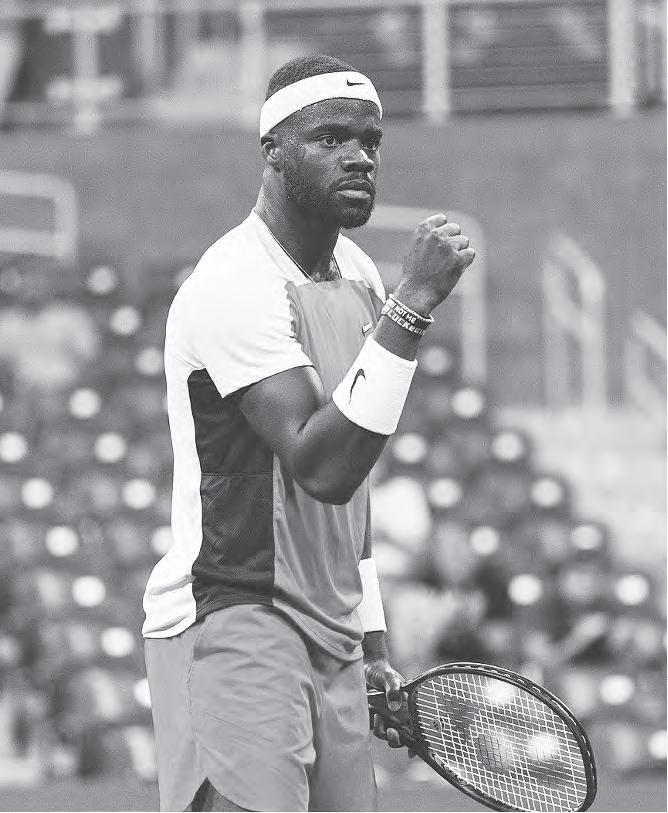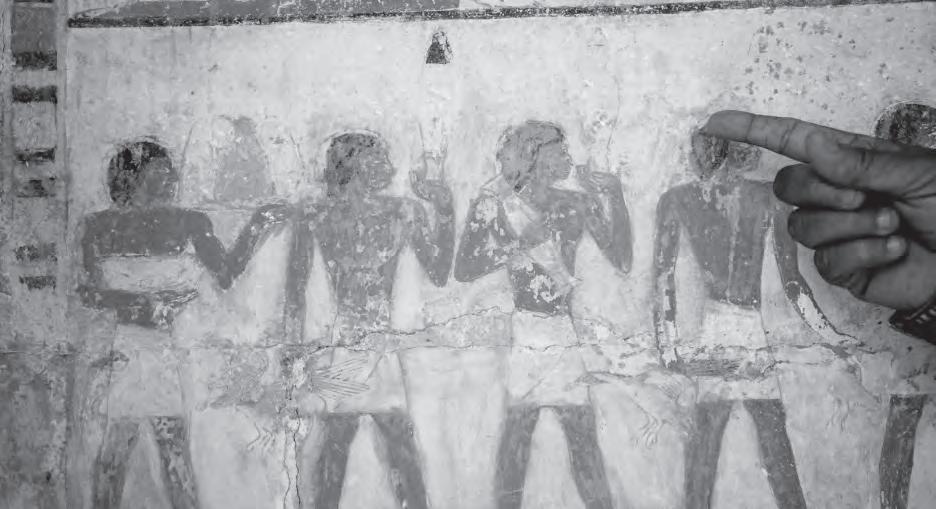
4 minute read
Parties To Agree To New Cease-Fire
By Samy Magdy Associated Press
Saudi Arabia and the United States urged Sudan’s warring parties Sunday to agree to and “effectively implement” a new cease-fire as fighting showed no signs of abating in the northeastern African nation.
For weeks, Saudi Arabia and the United States have been mediating between the warring parties. On May 21, both countries successfully brokered a temporary cease-fire agreement to help with the delivery of much-needed humanitarian aid to the war-torn country. Their efforts, however, were dealt a blow when the military announced on Wednesday it would no longer participate in the cease-fire talks held in the Saudi coastal city of Jeddah.
Following the military’s decision, the U.S. and Saudi Arabia said they were suspending the talks “as a result of repeated serious violations of the short- term cease-fire.’’
President Joe Biden’s administration imposed sanctions against key Sudanese defense companies run by the military and the RSF and people who “perpetuate violence” in Sudan.
In their statement on Sunday, Washington and Riyad said they continued to engage representatives of the military and the RSF who remained in Jeddah. They urged the Sudanese warring sides to agree to and implement a new cease-fire following the latest one which expired late Saturday. The aim is to eventually establish a permanent cessation of hostilities in the war-wrecked country, they said.
The statement said the discussions focused on “facilitating humanitarian assistance’’ and reaching an agreement on ‘’near-term steps the parties must take” before resuming the talks.
The fighting has turned the capital, Khartoum, and other urban areas into battlefields, resulting in widespread looting and destruction of residential areas across the country. The conflict has also displaced more than 1.65 million people who fled to safer areas in Sudan and neighboring countries.
Residents reported intense fighting over the past two days in Khartoum and its neighboring cities of Omdurman and Bahri. The clashes intensified between the military and the RSF in the town of Kutum in North Darfur province. Residents reported that the town’s market, many houses, and a camp for displaced people were burned down. There were reports of dozens of casualties among civilians.
Darfur Gov. Mini Arko Minawi said on Twitter on Sunday that Kutum residents have experienced “terrible violations” including killings and looting.
Minawi, a rebel leader who was named governor of the western region as part of a 2020 peace deal, declared Darfur a “disaster area.’’ He urged the international community to send humanitarian assistance “by all available means to save people in the stricken region.”
“Everybody gets them after a loss,” said Tiafoe, a 25-year-old from Maryland who was a semifinalist at last year’s U.S. Open and reached the French Open’s third round with a victory Thursday. “It’s just how society is today. I know how that affects people’s mental health. That’s very real.”

Sloane Stephens, the 2017 champion at Flushing Meadows and 2018 runner-up at Roland Garros, says she often deals with racist messages directed at her online, and said some prompted the FBI to investigate. “It’s obviously been a problem my entire career. It has never stopped,” said Stephens, who is Black. “If anything, it’s only gotten worse.”
In a bid to try to protect athletes from that sort of abuse at Roland Garros during the 15-day Grand Slam tournament that ends June 11, the French Tennis Federation (FFT) is paying a company to provide players with software that uses artificial intelligence to block these sorts of negative comments.
Every contestant in every category - singles, doubles, juniors, wheelchair competitors and so on, for a total of around 700 to 800 - is allowed free access to Bodyguard. ai for use on Twitter, Instagram and Facebook. A few dozen players had signed up for the service as of the start of this week, according to Bodyguard.
The cost to the federation [is] at somewhere between $30,000 and $50,000. That includes monitoring social media used by the FFT and the French Open itself. An FFT spokeswoman said Wednesday that 4,500 messages had been deleted out of the 79,000 received on those accounts since May 21.
Yann Guerin, head of sports for Nice-based Bodyguard, said the company’s software - which is constantly updated by employees who might notice new words or emojis that should be part of the screening - needs less than 100 milliseconds to analyze a comment and delete it if it’s “hateful or undesirable.
Several players, from various countries, described distasteful messages arriving via apps. Usually accounts are flooded after a defeat - often, they say, from gamblers disappointed to lose money wagering on a match.
There are skeptics, then there are players such as Tiafoe or the French Open’s 15th-seeded man, Borna Coric, who didn’t sign up for the AI service because they no longer get bothered by the vitriol.
“I was, for sure, upset the first couple of times,” said Coric, who is from Croatia. “But then you realize that those are not good people. And they would never come to your face and say it.”
U.S. Tennis Association spokesman Brendan McIntyre said the USTA is “evaluating the product and determining whether this is something we would like to make available to players for 2023 and beyond.”
Egyptian antiquities authorities Saturday unveiled ancient workshops and tombs they say were discovered recently at a Pharaonic necropolis just outside the capital Cairo.
The spaces were found in the sprawling necropolis of Saqqara, which is a part of Egypt’s ancient capital of Memphis, a UNESCO World Heritage site.

Mostafa Waziri, secretary-general of the Supreme Council of Antiquities, said the workshops had been used to mummify humans and sacred animals. They date back to the 30th Pharaonic Dynasty (380 BC to 343 BC) and Ptolemaic period (305 BC to 30 BC), he said.
Inside the workshops, archaeologists found clay pots and other items apparently used in mummification, as well as ritual vessels, Waziri said.
The tombs, meanwhile, were for a top official from the Old Kingdom of ancient Egypt, and a priest from the New Kingdom, according to Sabri Farag, head of the Saqqara archaeological site.
In recent years, Egypt’s government has heavily promoted new archaeological finds to international media and diplomats. It hopes that such discoveries will help attract more tourists to the country to revive an industry that suffered from political turmoil following the 2011 uprising.









